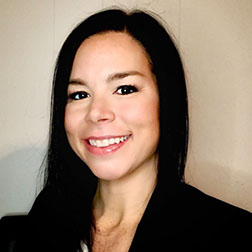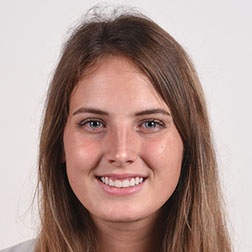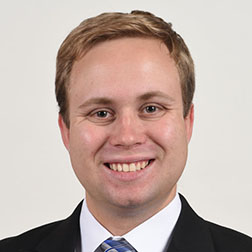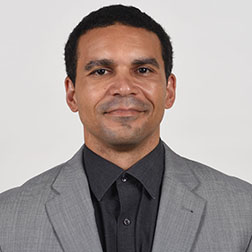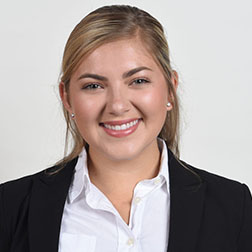Pro Bono Showcase highlights impactful work of Stetson Law students
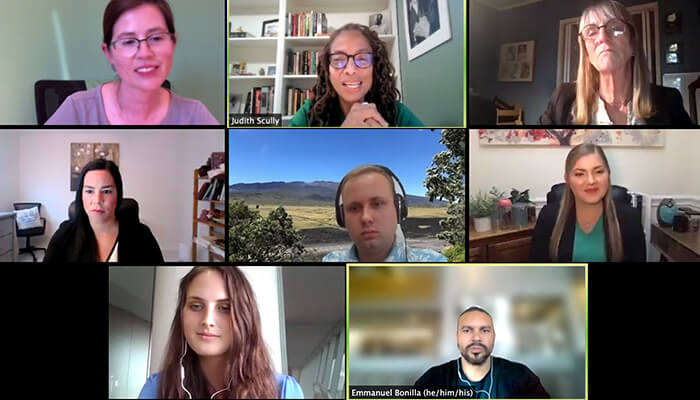
As part of Stetson University College of Law’s deep commitment to providing quality pro bono service, the college hosts an annual William Reece Smith, Jr. Pro Bono Showcase to highlight some of the most impactful work of Stetson students.
“The five finalists, as well as all the other entrants, represent the very best of Stetson Law,” said Professor Ann Piccard. “We talk frequently about ‘Excellence in Advocacy,’ and the pro bono work we heard about is truly Excellence in Social Justice Advocacy. These students are the embodiment of everything that is good, hopeful, and inspiring about this law school community.”
This fall’s event was held on Sept. 30, and five student finalists shared their experiences. Professor Kristen Adams, Ann Piccard and Judith Scully, co-coordinators of the Social Justice Advocacy Program, evaluated the written submissions and oral presentations of the students and selected one to win a free parking space.
“This year’s applicants truly represented the principles and values of cultural diversity and passionate community advocacy,” Scully said.
The five finalists were Hillary Hazeltine, Emmanuel Bonilla, Will Davis, Tiffany Hilton and Jessica Leabu. Hilton was named winner of the Showcase. Read more about her project and all of the others below.
“Students are doing such extraordinary work in closing the justice gap,” Adams said. “We hope this will be a resource for students who have yet to complete their hours to find inspiration as to what they would like to do.”
8th Amendment Protection
Tiffany Hilton struggled with opioid substance abuse disorder and spent years in and out of the criminal justice system. She said she witnessed the justice gap firsthand. Her recovery gave her the opportunity to realize her lifelong dream of being a lawyer, and Stetson gave her the second chance she needed. Her singular goal as an attorney is to help others going through what she once did.
The Florida Bar regularly solicits volunteers from its membership to take on cases pro bono. In March 2021, Hilton learned of a special one where the judge would allow a law student to handle the case if supervised by a licensed attorney. It involved a transgender woman of color who was incarcerated and was being beaten by the other prisoners because of her status. Hilton contacted her former boss at a personal injury law firm, who agreed to supervisor her. They drove to the prison to meet the client and took the case.
Hilton successfully argued before Judge Robert Hinkle to reopen discovery in the case and then proceeded to devote every spare second from her law school studies on it. She deposed guards and other witnesses, discovered the Department of Corrections engaged in spoliation of evidence, filed a motion to compel, and ultimately settled the case at mediation. Her client received a substantial amount of money that will help her with living expenses once she is released from prison.
Hilton said she wanted her client to know she was not alone anymore and that there was someone fighting for her. So many people discard the rights of the accused and the incarcerated, framing them as criminals not worthy of dignity and respect.
“I know firsthand they are wrong,” she said.
“The only thing that separates me from my clients is where they are in their journeys.”
Voting Rights
Hillary Hazeltine served as an extern with the Wisconsin Department of Justice where she worked on a large project for the 2020 election. She devoted hours to reviewing state statutes and voter information materials to ensure everything was updated and accurate. The goal was to make sure voters knew their rights, how to vote, when to vote, etc.
“Knowing your rights to vote is just a huge part of advocacy,” she said.
Conservation and Sovereignty
Will Davis vacationed in Hawaii and fell in love with the island. When he began searching for internship opportunities, he tapped Professor Royal Gardner, director of the Institute for Biodiversity Law and Policy, for connections that might get him back to the Aloha State. It worked, and he spent his summer serving in the Office of Hawaiian Affairs (OHA), a semi-autonomous state agency responsible for improving the wellbeing of all Native Hawaiians.
Davis was assigned to work on a series of legislative bills dealing with managing resources for land and water conservation. As a student in the Environmental Law Concentration, he was ready for the challenge, and ultimately saw one of the bills he worked on signed into law in June.
The overall experience taught him much about Hawaiian history, inspired him to write a law journal article on Hawaiian land use law, and solidified his desire to continue working to help native Hawaiians protect their sovereignty and natural resources.
Veterans Services
Emmanuel Bonilla served in Stetson Law’s Veterans Advocacy Clinic during the summer of his 1L year helping veterans file disability claims. The work required a deep dive into administrative law and medical record reviews, but as a veteran himself, Bonilla benefitted from seeing the process from both sides. He called the clinic a safe space where he was able handle real-life cases under the supervision of licensed attorneys who ensured he couldn’t make a mistake that would hurt the client’s case. Bonilla is now a 3L looking forward to graduation, but his Veterans Advocacy Clinic experience motivated him to apply for an Equal Justice Works Fellowship where he can extend his commitment to public service.
Guardian ad Litem
Jessica Leabu served as a volunteer guardian in the Florida Guardian ad Litem program, which works with children and families in dependency cases where children are removed from the parents’ homes. Guardians are appointed to help design case plans for families to work toward reunification. The role is equal parts investigator, mediator, counselor and friend. Children in these cases face more change and confusion than most people realize; the guardian provides a sense of consistency and gives them a voice, Leabu said.
She began training in January 2020 and was appointed her first case the following month. It involved three brothers: two had been in foster care for more than a year, and the youngest was born into the system. The oldest had been separated from his siblings, and one of the first things Leabu determined was that the three should be placed in a foster home together. The oldest was non-verbal initially but started talking a month after being reunited with his siblings.
She developed a great relationship with the children through monthly visits with them to play and discuss their needs. She talked with their teachers and therapists, collected medical records, and wrote a report every six months for judicial review to make recommendations. She attended hearings and made oral testimony if necessary. She played mediator when a dispute erupted between caregivers to help them work out their differences in benefit of the children. When she realized the oldest child needed an official mental health diagnosis to get the services he needed, she worked with officials to get him an appointment with a pediatric neuropsychologist. He is now speaking in full sentences and able to articulate his needs and wants.
“I feel incredibly blessed to make a difference in the lives of these children,” Leabu said.
Post date: Oct. 27, 2021
Media contact: Kate Bradshaw
[email protected] | 727-430-1580
